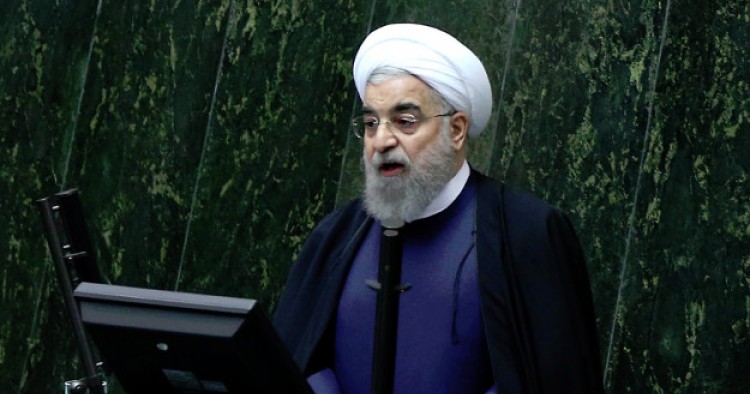At a press conference on January 17, Iranian President Hassan Rouhani stated that “Iran would welcome working with Saudi Arabia to bring about a more stable Middle East.” He urged for “moderation” and “respect.” This message from the Iranian president is positive and should be applauded. However, the question in so many capitals around the Middle East is whether Rouhani’s posture and message of “moderation” has any bearing on the actual policies that Tehran is presently pursuing in the region.
In fact, only recently a top Iranian academic with close ties to Iranian state agencies published an extensive paper that said Rouhani’s views on Iranian security policy and foreign affairs are “trivial” in the final decision-making in Tehran. The academic, Kayhan Barzegar, made it clear that in such strategic policy realms it is only the preferences of Supreme Leader Ayatollah Ali Khamenei that matters.
It is hard for outsiders to invest too much hope in this latest olive branch of Rouhani when even analysts and commentators in Tehran openly dismiss him as irrelevant on questions pertaining to Iranian security and regional policies. Before President Rouhani’s message of moderation and cooperation can be taken seriously, he would have to first carve out a more credible role for himself on matters involving Iran’s actions in the Middle East.
Such a scenario is tantamount to a quest for more political influence and it is yet highly unlikely that Rouhani will engage in such an effort and whether he will be successful if he pushed back against Khamenei’s control over Iranian regional policies. For example, Iran’s extensive state-controlled media operations continue to engage in an intense campaign to discredit rival neighboring states such as Saudi Arabia.
At the same press conference, Rouhani informed that some 10 states have offered to mediate between Iran and Saudi Arabia. But then he added that Iran is open to such mediation efforts only if Riyadh “takes the right decisions” involving developments [read, Iraq, Yemen and Syria] in the region. This latter comment was hardly an olive branch and more of an ultimatum, which the Saudis are bound to reject out of hand.
The Middle East Institute (MEI) is an independent, non-partisan, non-for-profit, educational organization. It does not engage in advocacy and its scholars’ opinions are their own. MEI welcomes financial donations, but retains sole editorial control over its work and its publications reflect only the authors’ views. For a listing of MEI donors, please click here.













